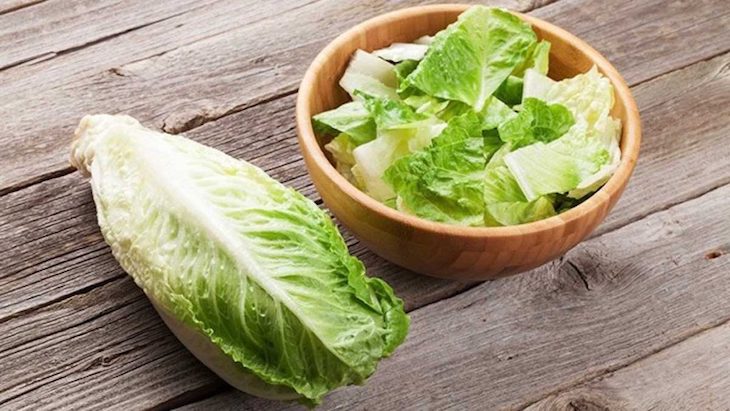This timeline of three romaine E. coli O157:H7 outbreaks is intended to reduce confusion about the illnesses and the products and restaurants they are linked to or potentially linked to. The three outbreaks are a large multistate outbreak linked to romaine lettuce grown in Salinas, California; an outbreak linked to Fresh Express Sunflower Crisp Chopped Salad Kit that has sickened people in the upper Midwest; and an E. coli outbreak associated with seven Evergreen restaurants in the Seattle, Washington area. Only the outbreak associated with Evergreen restaurants has been declared over.

All three of these outbreaks have been named by the FDA as having a common grower, even though the strains of E. coli are different. The FDA notice states, “Currently, the tracebacks on all three outbreaks have identified a common grower in Salinas. FDA, CDC, and California partners are deploying a team to conduct new investigations at several ranches used by this grower as we try to identify the source of the contamination.” The grower has not been named.
E. coli O157:H7 HUS Outbreak Linked to Romaine From Salinas, CA
The large multistate E. coli O157:H7 HUS outbreak linked to romaine lettuce harvested from the Salinas, California area has sickened at least 138 people in 25 states. Seventy-two people have been hospitalized, and thirteen have developed hemolytic uremic syndrome (HUS), a type of kidney failure.
The CDC is still advising consumers to not eat and retailers to not sell any romaine from Salinas. The harvest season ended in that area on November 30, 2019, but illnesses have been reported after that date.
November 18, 2019: This outbreak was first noticed by officials in Maryland in November 2019. At that time, consumers were being advised to avoid Ready Pac Bistro Bowl Chicken Caesar Salad with a best by date of October 31, 2019 that were sold at Sam’s Club and other retailers.
November 20, 2019: The CDC issues an outbreak notice stating that 17 people living in 8 states have been infected by the outbreak strain of E coli O157:H7. The Salinas, California harvest region is mentioned for the first time.
November 21, 2019: Wisconsin officials issue a recall for romaine lettuce after laboratory testing found the same strain of E. coli that was making people sick in Maryland in romaine lettuce that was harvested from the Salinas, California growing region.
November 22, 2019: The CDC issues another outbreak notice, adding 23 more ill persons to the total, making a total of 40 sick, with 5 HUS patients. The government tells consumers to avoid eating any romaine lettuce harvested from the Salinas, California area.
November 26, 2019: The CDC adds another 27 patients to the case count. Nineteen states are now involved, and one more HUS patient has been added.
December 4, 2019: An additional 35 people are added to the case count, making a total of 102 people sick in 23 states. Fifty-eight have been hospitalized, and 10 people have developed HUS.
December 6, 2019: Wisconsin officials found the outbreak strain in an unopened package of Fresh Express Leafy Green Romaine Salad that included lettuce harvested from the Salinas, California growing area.
December 19, 2019: The latest update posted by the CDC states that 138 people in 25 states are sick. Seventy-two people are hospitalized, and thirteen have developed HUS.
Upper Midwest E. coli O157:H7 Outbreak Linked to Fresh Express Sunflower Crisp Chopped Salad Kit
This E. coli O157:H7 outbreak is linked to a specific product: Fresh Express Sunflower Crisp Chopped Salad Kit with best by dates up to and including December 7, 2019. There are eight ill people in three states in this outbreak: Minnesota, Wisconsin, and North Dakota. There are also 24 people in Canada sick with E. coli infections linked to this specific product.
December 8, 2019: A recall for the Sunflower Crisp salad was issued in Canada, for possible E. coli O157:H7 contamination. On that same date, Canada announced an E. coli outbreak associated with that product that sickened 16 people in five provinces.
December 9, 2019: The CDC issued an outbreak notice stating that 8 people in 3 states are sick with E. coli O157:H7 infections linked to Fresh Express Sunflower Crisp Chopped Salad Kits. One person has developed HUS. This is the latest update on this outbreak.
December 10, 2019: The Minnesota Department of Health issues a notice stating that five Minnesotans are sick with E. coli O157:H7 infections that are “linked primarily” to Fresh Express Sunflower Crisp Chopped Salad Kits. Illness onset dates ranged from November 8 through November 16, 2019.
December 13, 2019: The outbreak in Canada was updated to include 24 patients in six provinces.
December 18, 2019: The outbreak was updated to include another patient in Canada, with a total of 25 sick. Fresh Express Sunflower Crisp Chopped Salad Kits were recalled on December 8, 2019, and updated on December 12, 2019.
E. coli O157:H7 Outbreak Associated with Evergreen restaurants in Seattle, Washington
This E. coli O157:H7 outbreak has sickened 15 people and hospitalized three. Inspection reports from all seven restaurants included in the outbreak notice were excellent, and investigators did not find any violations that may have led to this outbreak.
November 27, 2019: The Seattle King County Health Department issues a notice stating that seven people are sick with E. coli O157:H7 infections associated with four Seattle Evergreen restaurants. One person was hospitalized.
December 7, 2019: Thirteen people are now sick in this outbreak, which is associated with six Evergreen restaurants. Three people have been hospitalized.
December 16, 2019: Seattle King County Public Health issues a notice stating that the outbreak appears to be over after sickening fifteen people, hospitalizing three. The notice states that the outbreak is associated with six Evergreen restaurants in that area. The strain of E. coli bacteria that sickened people in this outbreak is different from the strain in the large multistate outbreak.
Two Outbreaks Are Ongoing
Two of these outbreaks, the large multistate outbreak and the outbreak in the upper Midwest, are still ongoing. The last update by the CDC on the larger outbreak was issued on December 19, 2019 and it still advised people to avoid romaine harvested in Salinas.

You can contact food safety attorney Fred Pritzker for help if you have contracted food poisoning by calling 1-888-377-8900 or 612-338-0202.
Most, but not all, romaine lettuce products are voluntarily marked with the harvest area. That identification can be hard to find, so look carefully at any romaine product you want to buy to make sure it didn’t come from Salinas. Odds are that the Salinas romaine is no longer available on store shelves.
Symptoms of an E. coli O157:H7 Infectious include a mild fever, vomiting, painful and severe abdominal and stomach cramps, and diarrhea that may be bloody. Symptoms of HUS include little urine output, lethargy, easy bruising, and bleeding from the nose or mouth. Anyone experiencing these symptoms should see a doctor.




